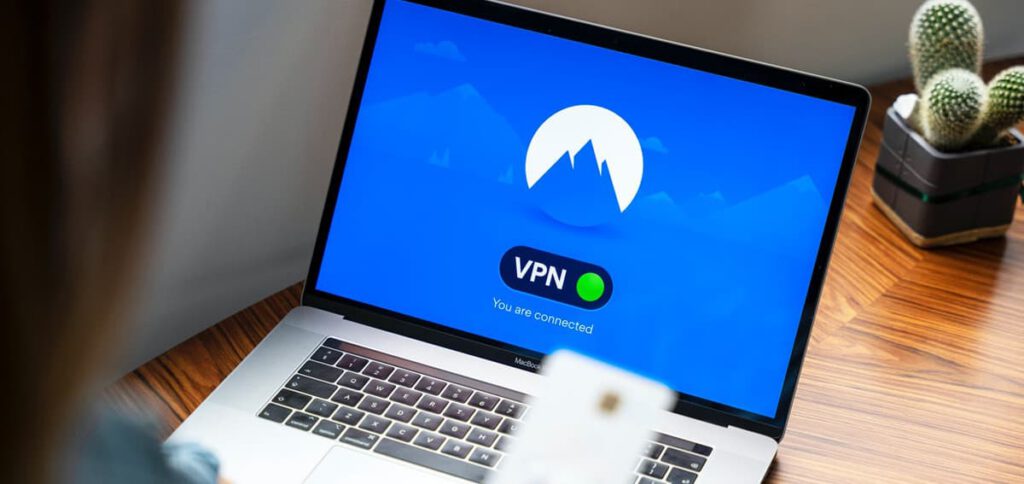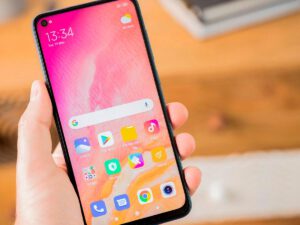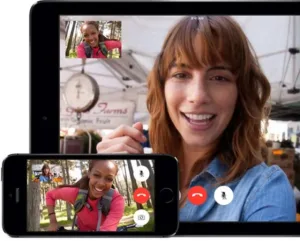Not sure what is VPN on mobile? Do you want to know how to use a VPN on Android? If yes, then you are in the right place. At TuAppPara we can help you.
We will take care of explaining all the aspects related to this technology. Privacy and security first.
If you want to discover all its advantages, don’t miss this post.
What is VPN?
Due to technological development, now everyone can use a VPN very easily. However, there is little confusion about what a VPN connection is.
Although there is only one correct definition, currently society has created its own interpretation, which is somewhat wrong.
First, we must know what VPN means and what is its true interpretation. First of all, VPN stands for “virtual private network”, that is, virtual private network. Its name refers to any type of technology that hides and transmits Internet protocol data over another network.
This technology allows us to access various resources that are not accessible through the public Internet.
At first this technology was only available for computers. Today there is VPN for Android and iOS, and their functionality is the same.
Now is the time to get to know the popular but incorrect interpretation. People define the term “VPN” as a proxy server with VPN technology.

How does it work
In order for your computer to connect to the Internet, it needs to communicate with the modem or router. This connection can be wired or wireless. Typically, there are multiple devices in a household that connect to the modem and each is assigned an IP address.
What is described above is a “Local Network” and is called this because the connected devices are close to each other. In addition, they can easily share information between them, because they are connected to the same network.
The drawback of a local network is the need for close proximity of the devices. However, this can be solved with a VPN, because it allows you to create a connection between different devices regardless of the distance.
Thus, it allows us to have a long-distance connection and share data , but these will be encrypted.
When you use a VPN service, the following happens:
- Your devices and Internet traffic communicate with the service provider that you have contracted.
- Then your internet traffic connects to the VPN server
- Finally, your information will reach its destination, but with a special encryption.
That is, the IP address of your Internet traffic is the IP address of the VPN server. This is the basic explanation of one of the 3 types of VPN that exist, that is, Client to Server VPN.
In short, it is a virtual connection or bridge between two devices that are widely separated. This connection can bring several advantages, the main one is data encryption with one of the protocols that we will explain.
VPN protocols
A virtual private network is a technology that makes use of various types of protocols . For this reason, we have taken care of explaining what those protocols are so you can decide which is the best for you:
IPsec (Internet Protocol Security)
A VPN on Android and on your computer have this protocol. It is one of the most common. This is responsible for using an algorithm to encrypt the data and creates a more sophisticated authentication system. It uses 2 methods to encrypt the information, the transport mode and the tunnel mode. It also supports 56-bit and 168-bit encryption.
PPTP / MPPE (Point-to-Point Tunneling Protocol)
This technology was developed by collaboration between several private companies. This protocol supports various types of encryption, such as 40 bit and 128 bit. Specifically PPTP (Point-to-Point Tunneling Protocol) is a protocol designed to create a secure tunnel , from a remote client to a private server.
In the case of MPPE (Microsoft Point-to-Point Encryption), this protocol encrypts the data of connections with dial-up access, but by itself it cannot compress or expand the information. For this reason, MPPE is usually integrated with PPTP, because the latter compresses the data
L2TP / IPsec
This combination looks like the previous one. Because, it is the combination of 2 protocols. L2TP (Layer 2 Tunneling Protocol) is a protocol for creating virtual private networks, but it is able to protect data with total efficiency. Therefore, it was decided to use the IPsec protocol (short for Internet Protocol security). This is a set of protocols that authenticates and / or encrypts each IP packet.
IKEv2
Many mobile VPN connections that make use of IKEv2 (Internet Key Exchange). This is a protocol that also needs to bind with IPSec and thus be a true protocol for VPN. Otherwise, it would be just a tunneling protocol. But, it is usually referred to as just “IKEv2”.
SSTP
SSTP (Secure Sockets Tunneling Protocol) is a way to create a virtual private network tunnel . It is designed to create a mechanism capable of transporting PPP traffic, through an SSL / TLS channel. Transport Layer Security (TLS) is the successor protocol to Secure Sockets Layer (SSL).
SSL / TLS is a protocol that provides security in the transport of keys, encryption and verification of the integrity of the traffic. So, SSTP mobile and desktop VPN services create a private network tunnel, which is secured with SSL / TLS.
OpenVPN
This is a tool based on free software and has the SSL (Secure Sockets Layer) protocol. It is used to create point-to-point connectivity, along with hierarchical validation of users and hosts.
The levels of the Open Systems Interconnection model can be used in this tool. It is also known as the OSI model and works only as a reference model for network protocols. That is, it is not a network architecture.
Although the standard today is the IPsec protocol, OpenVPN is still the easiest to configure. It is also the easiest to learn and use.
What is a VPN for?
Now that you know what VPN is on your mobile and on your computer, it is time to know the usefulness of this technology. Its uses range from the simplest to the most complex and professional.
P2P Downloads
P2P downloads are very common today. One of the most used P2P protocols is BitTorrent, which is also the name of the famous program and app for downloading movies .
Downloading a file is not illegal: it all depends on the downloaded content. For example, the BitTorrent protocol is related to illegal downloading. Content downloaded with this protocol is copyrighted.
One of the best examples is pirated games or movies and series with rights. Because of this, many Internet services are blocking P2P download protocols.
To avoid this, we can use a VPN service and thus avoid these restrictions . Although, one of the disadvantages of the VPN is the decrease in download speed.
Watch streaming content from other countries
Just as you can bypass restrictions on P2P download, we can also do the same with streaming sites.
A very good example of this utility is Netflix. This streaming service has certain regional restrictions. Users in the United States have a lot of content available, but users in Latin America or Spain tend to have less.
By using this technology, we can encrypt our data and have a United States address. With this, we can see all the content of that country.
We can use the same methodology with various Internet television channels. Depending on the platform, it may broadcast certain free content that is not available in your country. For example, a mobile VPN connection will allow us to watch f1 for free .
We should only use a television from a specific country with the desired programming. This technique will also allow us to see the Moto GP live or the NBA live .
Access to your private network while traveling
When we explained earlier what a VPN is, we emphasized that information can be encrypted and protected . This advantage is very useful when traveling, because you can access a personal private network
Every day it is more common for people to have their own network. This can be located in your own home, where you have the computer or laptop that is connected to your modem.
If you want to access your local network, you can do so from a distance using a VPN service. With this, you will have access to all your information from anywhere .
Remote work
The pandemic popularized the terms “remote work” and “telework”. As explained above, a VPN is a tunnel or connection that is encrypted and can be connected to corporate servers.
Many companies use this method, where their workers can use a VPN on Android or Windows. With this, they connect to the company’s servers and continue working from a distance.
This method is implemented, because the company wants its data and information to be used only by the worker. To do this, create a tunnel or connection between this server and the employee, but no one else can have access.
Bypass censorship
There are many types of censorship, the Internet being one of the most censored and / or controlled technologies. Although, this censorship can be evaded on many occasions.
For example, reporting websites are heavily censored by some governments. But, the best example is the blockade used by the government of China.
This country has more than 2000 blocked websites , although its citizens can still access them using a VPN.
This situation can be used with almost any lock, but we must be aware that this can lead to legal problems.
Avoid geoblocks
Geoblocking is becoming more and more common every day and can be used to protect people from inappropriate content or for censorship / control. If it is the second reason, then we can avoid it by using a VPN on Android or any other operating system.
For example, many online casino websites are blocked in various countries. This is due to the regulations that regulate and control gambling.
When a person tries to enter a casino and the casino is blocked for that country, the page will simply not load. A window may also appear, announcing the regional lock. But, this can be bypassed using a VPN.
Keep in mind that many geoblocking websites can detect when their users are using a VPN service.
Additional security to your connection
There is never an excess of security. For example, having an antivirus installed is highly recommended today, because hacks are becoming more common every day.
There have already been many major data thefts for connecting to a public network. Therefore, it is advisable to use a VPN for Android or Windows and thus protect your banking and / or personal data.
Gain anonymity online
Anonymity is important today, because privacy is becoming a luxury. Every time we use the Internet, we leave a fingerprint of our actions and our personality.
This information can be used for marketing campaigns or it can be used to control you. A government or even a hacker can track your actions through the fingerprint.
In addition, anonymity is also something very needed by influential people or that their work carries some type of risk. That is the case with politicians and political activists.
These people can have greater anonymity if they use a mobile VPN and mask their IP address.
Buy in your country from abroad
This situation is common. For example, if you are traveling abroad and need to buy something from your favorite store, it may be blocked by the region.
In this case, the only solution is to use a VPN service with a server hosted in your country. With this, the person will be able to access the retailer’s website and safely make their purchase.
How to set up a VPN on an Android mobile
Setting up an Android VPN is very easy. To do this, there are different methods. We explain them below.

What forms of VPN configuration are there for mobiles?
There are 3 basic ways to connect to a VPN from your mobile:
- Through the configuration of the mobile itself.
- Downloading a third-party app.
- Use an online VPN from your mobile browser.
Use the traditional method
If you are paying for a VPN service, it will usually have an app that will facilitate the connection setup. However, if you want to connect using the old school method, just follow these steps:
- Make sure you have all the necessary data ;
- The type of server: this is related to the different connection protocols.
- The address of the server: it is the most important data, because it is the server where you will connect. This data can be an IP address or even a domain name.
- Username and password: you have to identify yourself with the login information for the service.
- Enter the native configuration app .
- Then, click on the VPN option : since there are many versions of Android and layers of customization, the quickest thing to do is to type “VPN” in the search box. It is at the top.
- Click on “add VPN”: when setting up a VPN on Android for the first time, the VPN connection panel will appear empty.
- A new window will appear requesting the data of the VPN connection : these are the name, the type of connection and your user data. It is recommended to follow the instructions of your VPN service to the letter. When finished, click on “save”
- Tap the name of the connection: the new VPN connection will not connect by itself, you need to activate it.
- A window will appear requesting “ONLY” user data: this data is the name and password of your account. Once placed, click on “connect”.
With these steps, you will be connected to the VPN service that you have contracted. You must repeat these steps every time you want to connect.
Use the VPN service app
Due to the complexity of this traditional method, many users choose to use the app of the contracted service . The best VPN for Android is designed to simplify these steps in a few clicks.
Use an online VPN
Not all VPNs for Android must be downloaded or configured from the mobile options. There are services that can be used from the mobile browser , such as Open VPN.
Advantages of a VPN connection
Even after explaining what a VPN is and what it is for, we fell a bit short in some respects. Therefore, we will briefly explain the other advantages of using a VPN:
- It is compatible with all applications: true VPN connections (not proxy connections) are compatible with any app, because it encompasses all Internet traffic.
- It’s easy to connect and disconnect – after setup, turning it on and off is a breeze.
- You mask your activity from your Internet provider: if you don’t want your provider to know what your job is on the Internet, you can remain anonymous using a VPN
- Secure data transfer: If you own a personal NAS system and need to access it remotely, you can do so using a VPN. This technology will allow you to transfer data safely.
- If you want to access a game that is blocked for your country , you can do so using a VPN service. But remember that this can negatively impact internet speed.
VPN connections on your mobile: all your doubts answered
How to change the VPN on my Android?
If after setting up a VPN on your Android you need to change it, just follow these simple steps:
To edit the data
- Open the mobile settings app.
- Click on “networks and Internet”, then on “advanced” and finally on “VPN”.
- Find the VPN network you want to change and click on the configuration icon (represented by a nut)
- A new window will appear where you can modify the data.
- The last thing will be to click on “save”
If you want to always keep the connection active
- Open the settings app.
- Click on “networks and Internet”, then on “Advanced” and then on “VPN”.
- In the VPN network that you want to keep active, click on “settings” (represented by a nut located next to the connection)
- A new window will open, where you have to click on “VPN always active”
- Finally, click on “save”
What is VPN on mobile?
All Android phones have their own VPN client . That is, it is not necessary to use a third-party app to configure a virtual private network.
However, this process tends to be complicated. A VPN for Android works the same way as it does on Windows. The operating system for computers also has its own private network service.
So, a VPN on the mobile is a virtual private network that can be configured from the mobile settings.











1 Comment. Leave new
[…] Browsec VPN […]